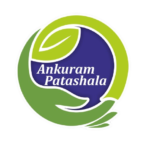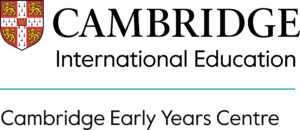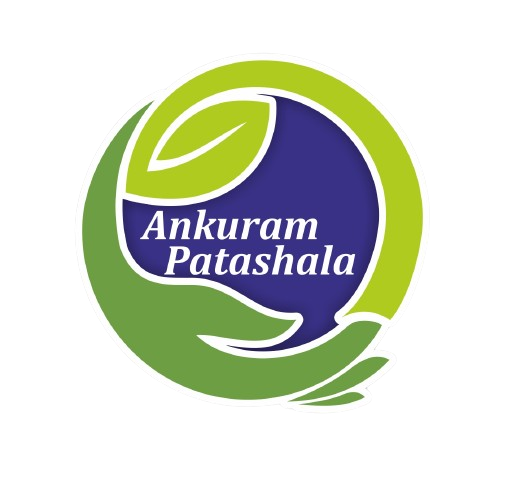Curriculum
Academics:
Our Early Childhood Program, which serves children ages 3 to 6, is designed with our youngest students in mind, providing them with an engaging and engaging curriculum to ease their transition into school. Our caring faculty members strive to assist the students’ intellectual, social, and emotional development. The Early Childhood Program has access to the entire campus and offers programs in Music, Art, Foreign languages, Karate, STEM , Brain and lots of time in our indoor playground. The program serves students up to the second grade. A strong sense of self-discipline, curiosity, empathy, and the basis for a love of learning are all fostered by the Early Childhood Program.
Curriculum:
The Early Childhood curriculum places a strong emphasis on interactive, flexible learning experiences that foster kids’ natural interest and aptitude for solving problems. The order of instruction is deliberately chosen to promote cross-curricular connections and skill consolidation. During the course of the curriculum, students learn to articulate their ideas clearly and build confidence in both written and spoken communication.
Ankuram Pre Primary Curriculum Integrated with Cambridge Early Years
Welcome to the Ankuram Curriculum, thoughtfully designed to align with the Cambridge Early Years to Stage 2 program. Our curriculum aims to provide young learners (aged 3-11 years) with a strong foundation, enabling them to thrive both within and beyond the classroom. Let’s explore the key features of our curriculum:
Fine motor skills involve small muscles working with the brain and nervous system to control movements in areas such as the hands, fingers, lips, tongue and eyes. Developing fine motor skills helps children do things like eating, writing, manipulating objects and getting dressed.
Speech, language, and communication skills play a big role in school success, from following classroom rules to learning to read to making new friends. Yet, it can be challenging to know if your child has all the speech and language skills they need to thrive in kindergarten.
PHONICS
To read and write individually & to communicate in good accent. Yes. It provides a structured and systematic approach to teaching phonics, which is crucial for early literacy development. Here are some reasons why Jolly Phonics is beneficial for kindergarten students:Letter-Sound Recognition,Reading Readiness, Spelling Skills,Confidence Building,Phonemic Awareness, Engaging and Fun
STORY TELLING
Stories are a powerful tool for teaching kids about the world around them. When children hear stories, it can help them learn about important values as they are introduced to new ideas, and exercise their creative thinking. Storytelling also enriches children’s emotional intelligence.
ROLE PLAY
This form of play encourages cooperation, sharing, and turn-taking, as children work together to create and act out imaginative scenarios. They learn to understand and respect different perspectives, develop empathy, and build stronger social connections with their peers.
Children learn to organise numbers in their heads, understand how much space objects take up, and what numbers mean in “the real world” sense. A Montessori Maths approach will allow children to move onto using a pen and paper with a broader understanding of what a number represents in the physical world.
A kindergarten academic expo can be a fantastic opportunity to showcase the learning and development of the students. Here are some ideas for what you can do:
- Student Projects: Display student projects, artwork, and crafts that highlight what they have learned throughout the year.
- Interactive Stations: Set up interactive stations where visitors can engage in activities related to the curriculum, such as counting games, alphabet activities, or science experiments.
- Performances: Organize performances by the students, such as songs, dances, or skits, to showcase their talents and skills.
- Demonstrations: Have students demonstrate activities they have learned, such as how to plant a seed, how to do a simple science experiment, or how to create a piece of art.
- Parent-Teacher Interaction: Provide opportunities for parents to interact with teachers and learn more about the curriculum and their child’s progress.
Brain Games can be a great way to help children develop important skills they will need later on in life. They are an entertaining and stimulating activity that can improve their academic performance, as well as their cognitive abilities and social development.
STEM builds critical thinking skills and children who study STEM tend to get better grades in other subjects as well. In addition, STEM gives kids the opportunity to have fun while learning something new. It will also help them in STEM-related careers when they get older.
Art provides kids with critical sensory input and can help children express their feelings in a multidimensional way.
When children play with sand, they experience a sense of calmness and relaxation, as they focus on the sensory input of the sand. Playing with sand can also help children cope with stress and anxiety by providing a safe outlet for their emotions.
The innocence that lies in the eyes of a child holds priceless gems of obscure emotions and talents, waiting to be revealed and accepted. Why not try and spill the jar of upright madness and let them discover themselves a little more than they do now.
Every Friday take away activities are done by the pre-kg children and given to them as take away.
Parents-teacher meetings in kindergarten are crucial for maintaining open communication between teachers and parents. Parents can learn about their child’s progress in various areas, including academic, social, and emotional development. Teachers can address any concerns they have about a child’s development or behavior and work with parents to find solutions.
Parents and teachers can work together to set goals for the child’s development and education.
These meetings help build a strong relationship between parents and teachers, which is important for supporting the child’s learning and development.
If a child has special needs or requires extra support, parents and teachers can develop a plan together to meet those needs.
Conducting an olympiad exam for kindergarten students can serve several purposes:
Assessment:
It can be used as a tool to assess the understanding and knowledge of young children in various subjects or skills.
Recognition:
The exam can recognize and reward students for their academic and non-academic achievements, fostering a sense of accomplishment and motivation.
Skill Development:
Preparing for the exam can help improve students’ critical thinking, problem-solving, and reasoning skills.
Competitive Spirit:
Healthy competition can inspire students to excel and perform to the best of their abilities.
Parental Involvement:
The olympiad can encourage parental involvement in their child’s education and provide them with insights into their child’s strengths and areas for improvement.
Promotion of Learning:
It can promote a love for learning and exploration among young children.
To teach them the importance of agriculture & healthy food.Taking kindergarten students on a farming in the field can offer a range of benefits, both educational and experiential:Hands-On Learning, Nature Connection, Learning about Agriculture, Sensory Experience, Understanding Food Sources, Life Cycle Awareness, Community Interaction, Physical Activity, Social Skills Development, Memory and Experience.
Exposing children to music at this stage develops their body and the mind coordination and strengthen memory skills.Learning to use a keyboard is an essential digital literacy skill in today’s technology-driven world.Keyboarding can improve hand-eye coordination and fine motor skills in young children.Efficient typing skills can help children complete school assignments and projects more quickly and effectively.In many professions, typing skills are a basic requirement. Learning to type at a young age can prepare children for future academic and professional endeavors.



